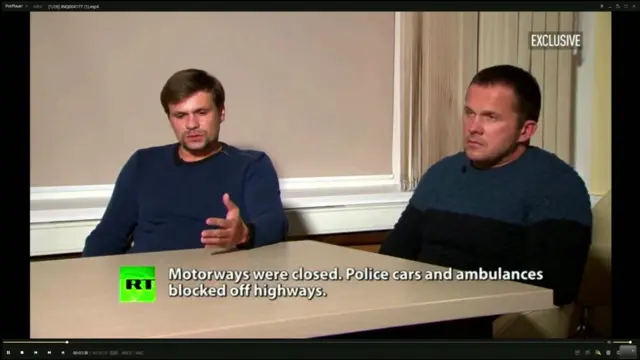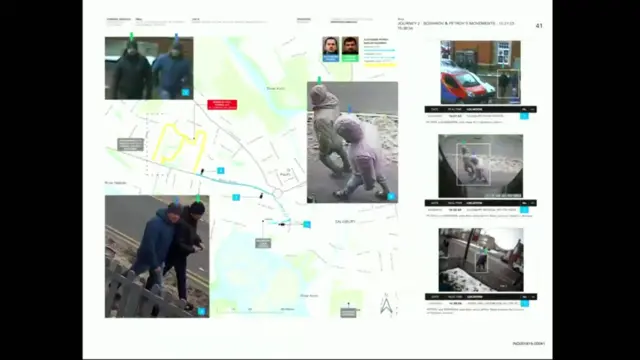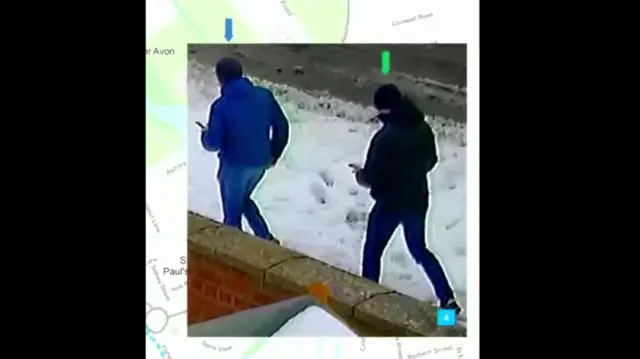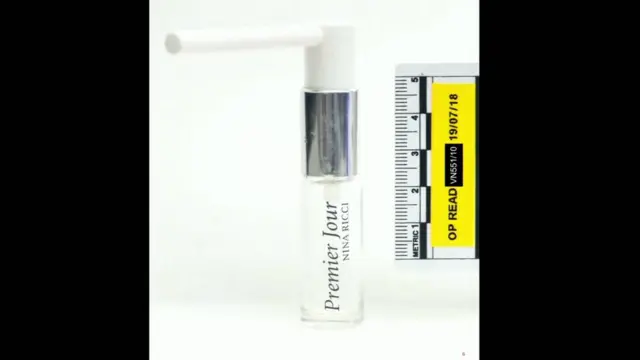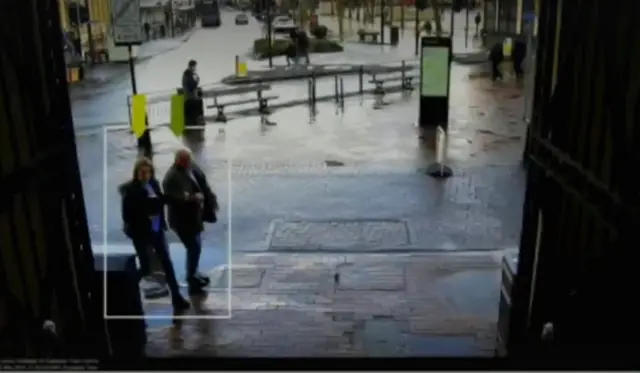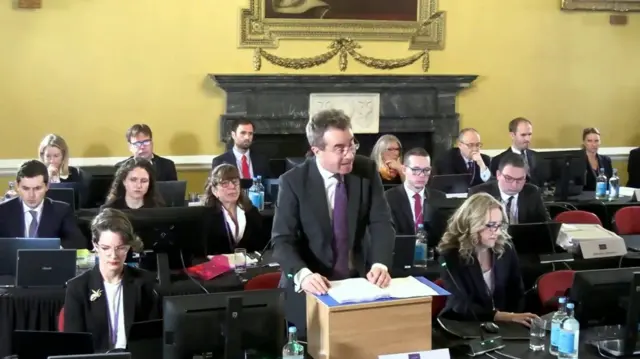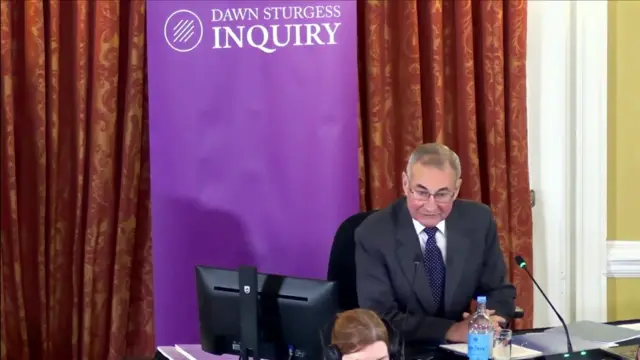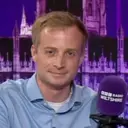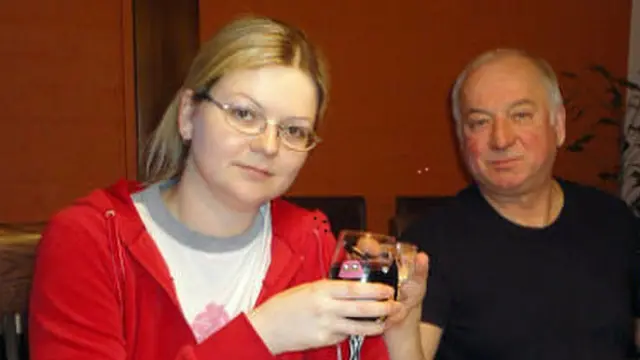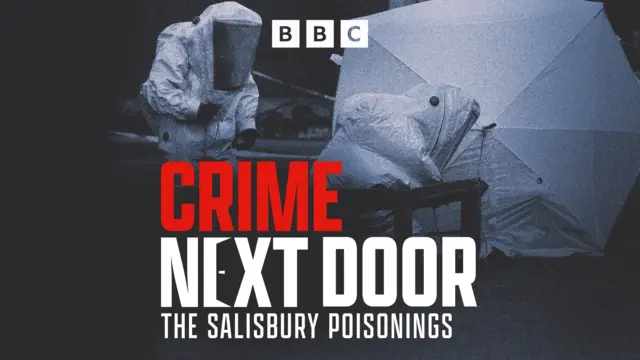Novichok victim Skripal says Vladimir Putin is behind the poisoningspublished at 12:55 BST 14 October 2024
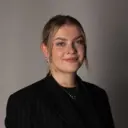 Imogen James
Imogen James
Live reporter
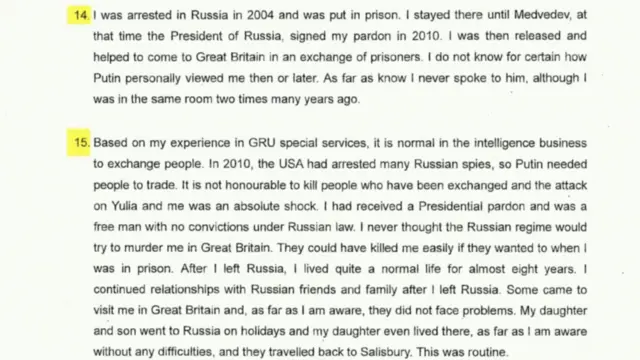 Image source, Crown Copyright
Image source, Crown CopyrightPart of a statement by Sergei Skripal, alleging Russia's involvement in his poisoning
A statement from Sergei Skripal is shown to the inquiry. He alleges Russian President Vladimir Putin is responsible for the poisonings.
"It's my private opinion," a police interview transcript shows Skripal as saying.
Sergei and Yulia Skripal will not give live evidence to the public inquiry, due to concerns for their safety.
 Image source, .
Image source, .